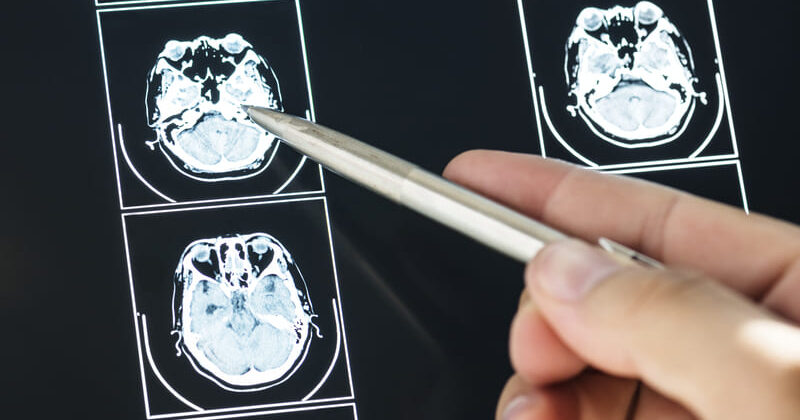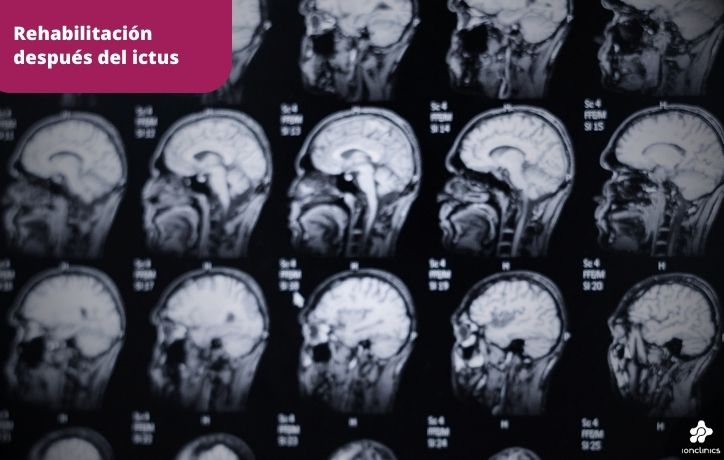Imagine a switch that, in an instant, shuts down vital functions in your body; that’s what happens with a stroke, a sudden, life-changing event. Pero en medio de la adversidad, there is a path to recovery that is illuminated by the hope of rehabilitation.
In today’s article, we explore the world of post-stroke rehabilitation and how neuromodulation is changing the way people recover.
What is Ictus?
An Ictus occurs when a blood vessel that carries oxygen and nutrients to the brain is blocked by a clot or ruptures. This means that part of the brain does not receive the blood (and oxygen) it needs, causing the affected brain cells to die. This sudden phenomenon directly impacts brain function, resulting in significant physical and cognitive challenges.

The Importance of Post Ictus Rehabilitation
Post-Ictus rehabilitation is a vital component of the recovery journey. It not only seeks to restore physical and cognitive functions, but also becomes one of the foundations for improving the quality of life of the patient and his or her family.
Through physical exercise, occupational therapy and cognitive work, the aim of rehabilitation is not only to restore lost functions, but also to enhance confidence and independence. It is not just a matter of relearning skills; it is a holistic process involving physical, mental and emotional work.
When does rehabilitation start?
In the field of post-stroke recovery, time is a critical factor. As soon as the patient’s medical condition is stabilised and he or she is cleared, the rehabilitation process begins. Early treatment presents a critical window of opportunity to extend recovery by maximising brain plasticity.
In the first days and weeks after the stroke, rehabilitation professionals work closely with the patient to set realistic goals and design a personalised plan, which can last up to 12 months. This plan can range from physiotherapy exercises and cognitive work to specific therapies according to the individual needs of each case.
It is important to note that rehabilitation is an ongoing process, as the patient progresses in their recovery, the planning is adjusted to progressively adjust to the body and mind. The commitment of the patient and the professional team are essential to achieve optimal results.

Neuromodulation and its role
Among the different approaches, neuromodulation stands out as an important tool in recovery, applied in conjunction with specific therapies aimed at addressing ictus-generated deficits. Controlled application of stimuli that modulate brain activity has been tested.
Neuromodulation works by specifically targeting the areas affected by stroke, stimulating brain plasticity and facilitating the regeneration of neural pathways.
In more practical terms, neuromodulation can improve motor function and cognition, with an impact on quality of life. Transcranial magnetic stimulation (TMS) and transcranial electrical stimulation (tDCS) are two of the most widely supported examples of neuromodulation technologies in this context.
The most important thing about neuromodulation is its ability to be applied in a personalised way – each patient is unique, and neuromodulation allows therapy to be tailored to individual needs. This precise customisation can accelerate recovery and improve long-term outcomes by enhancing the processes that the brain naturally generates during rehabilitation.
More information on:
The long road
The journey to recovery after a stroke is full of challenges, but it is also a journey full of hope, in which rehabilitation plays a crucial role. The increasingly widespread application of neuromodulation, coupled with personalised therapies, is making a remarkable difference, opening up new possibilities and bringing hope to post-stroke patients.
It is important to recognise that each step in this process represents a step towards a fuller and more autonomous life. Thanks to the joint efforts of patients, families and professionals, post-stroke rehabilitation has an increasingly encouraging prognosis, incorporating tools and techniques that guide treatment towards a more complete recovery.

